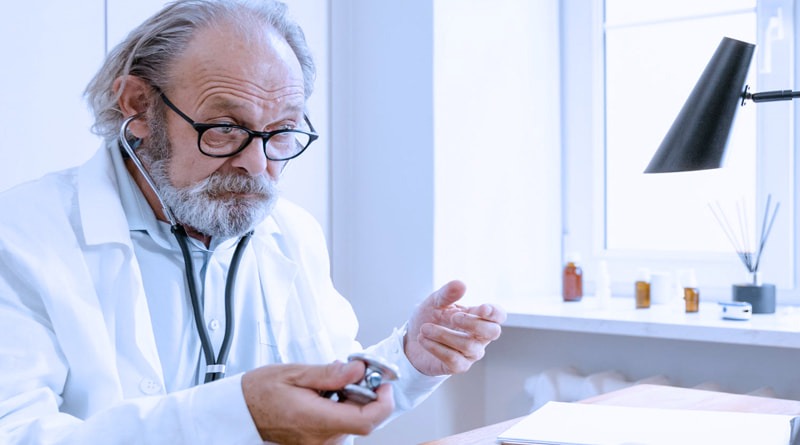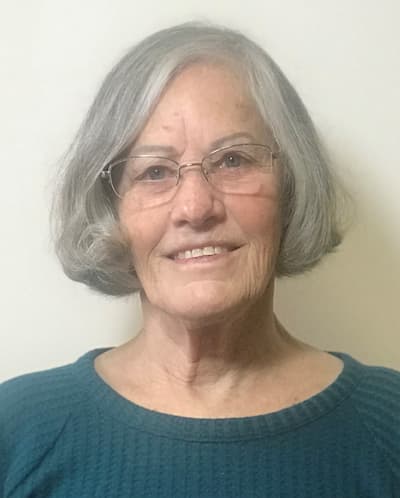
Adult ADHD & Uninformed Clinicians: Enough Already!
By Cynthia Hammer, MSW
The Persisting Problem of Clinicians and ADHD
We’ve known, for over 30 years, that adults have ADHD. Why are there still clinicians who are unable or unwilling to diagnose or treat adult ADHD? Why, when I visit online ADHD groups, do complaints about uninformed clinicians dominant the discussions?
It is hard to know how many individuals who seek an ADHD diagnosis are misled or mis-diagnosed, but even one feels like too many.
I am not advocating throwing out the baby with the bathwater as there are many well-informed psychologists and physicians who provide excellent service to their patients with ADHD.
But one bad apple can spoil the whole bushel.
ADHD is the most common neurological disorder of childhood. With ADHD continuing into adulthood 90% of the time, we can surmise that adult ADHD is the most common neurological disorder of adulthood. The professional organizations and training programs for psychologists and physicians need to do more to educate their members about adult ADHD. It is past time for clinicians to continue being uninformed about adult ADHD.
“Doctors [and psychologists] need to accept that it’s their responsibility to educate themselves about something that is quietly becoming a public health crisis.” ~Ellen Littman, Ph.D.
What People With ADHD Have Experienced
Here is a post about an uninformed psychologist.
She told me. “ADHD is supposed to get diagnosed when you’re a kid. ADHD in adults is difficult to diagnose.” She even said, “You graduated with good grades. How do you have ADHD?” Later she said, “There’s no medication for ADHD, only for anxiety and depression”
Here are responses to this post.
I wouldn’t trust any psychologist who wasn’t aware of first-line treatments (stimulant medication) for ADHD.
My psychologist said that all of my symptoms are valid and are totally ADHD, but denied the existence of ADHD and just called it me being really smart and easily distracted.
Since psychologists can’t prescribe meds in most states, I feel like some of the people who choose psychology/counseling as a profession may be prone to discount the importance and effectiveness of medication.
I was recently told by my therapist that I couldn’t have ADHD because “everyone with ADHD fails their classes and drops out of school.”
It makes me so angry to see a mental health person question how you can have ADHD and still get good grades.
Here is a scenario with an uninformed physician.
After a lifetime of arriving late, missing deadlines and having friends call her a flake, Suzie wanted to know whether her chronic distraction meant she had attention-deficit/hyperactivity disorder, ADHD.
Over three visits with her managed-care plan doctor Suzie completed urine and blood tests some doctors require to rule out drug abuse, and she was checked for any preexisting heart condition that might make stimulants risky.
Then came the last step: a telephone interview.
“What kind of student were you in elementary school?” the psychiatrist asked.
“I was an A student,” Crawford answered.
“I’m sorry,” he said, “You don’t meet the qualification for ADHD, and we can’t prescribe medication to treat it.”
Here are responses to posts similar to this one.
You will meet a lot of people dismissive of ADHD. Leave when a doctor does the same.
I asked the doctor about getting tested for it during my physical exam. Here’s what he said, “To be honest, I don’t think you have ADHD,” one minute after I met him for the first time.
I wouldn’t trust any arrogant person on anything no matter what “training” or “education” or “experience” they have. Arrogance means they choose what to believe and don’t listen to others; making their education, training and experience far less valuable than it is meant to be.
Doctors don’t get to pick and choose what conditions are real.
Do you realize how demeaning it is to seek help, only to be told, “You can’t have ADHD.”
The psychiatrist told me she doesn’t think I have ADHD, and my symptoms are a result of depression. She said, “ You wouldn’t have been able to graduate from University if I had ADHD.”
I’m paying out of pocket for my mental health care and meds because the provider covered by my insurance didn’t think I had ADHD because I was a good student in school, and he didn’t think ADHD could manifest differently in women than men, and he’d grown up with “severe ADHD” (and by implication knew all there was to know about it).
It’s insane. The absolute audacity of doctors who think, “hmm, Here is a patient that undoubtedly spent years of their lives trying every medication and every combination in the book until they finally found one that worked and it worked for a long time but you know what? After talking to them for five minutes I clearly know better and should take them off everything that they spent years trying to figure out because I assign a weird morality to certain medications.”
I blame my psychiatrist for not taking me seriously.
The most common response to posts of unhappy diagnostic experiences is: “Find an experienced clinician.” But good luck with that.
What Can We Do?
How do you find experienced clinicians? Ask online? Ask someone with ADHD? Search online ADHD directories? None of these avenues seem to satisfy. ( I will write more about the shortcomings of online ADHD Directories next month.)
If you don’t find an experienced clinician, I recommend exploring telehealth services. They are less costly, more convenient, more available and, I believe, more reliable in producing accurate adult ADHD diagnoses. Many people have used them and are well satisfied. This article has good information on telehealth services for ADHD.
Here are some possibilities to get you started.
Do your research and ask questions:
- Do you provide a diagnosis and as well as treatment for adult ADHD?
- Can you prescribe stimulants or only non-stimulant medications?
- Are you an approved provider in the state where I reside?
- What insurance companies cover your services? What percentage of the charges will they pay?
- Do you bill insurance or will I need to?
- How much does an evaluation cost? What are the costs of follow-up appointments?
Years ago, Dr. Thomas Phelan said that most adults who think they have ADHD, do. If you believe you have undiagnosed ADHD, don’t give up. There is a clinician out there who will believe you and help you.
Cynthia Hammer, MSW, is the Executive Director of the non-profit organization, Inattentive ADHD Coalition (www.iadhd.org)

Cynthia Hammer is the Executive Director of the Inattentive ADHD Coalition – www.iadhd.org.
She earned her Master’s Degree in Social Work in 1972. For many years she was a stay-at-home mom raising three sons while her husband spent long days at work as a general surgeon. She started a non-profit organization in 1993 to help adults with ADHD, and she recently started a different non-profit, the Inattentive ADHd Coalition to create more awareness of Inattentive ADHD. Visit it here: www.iadhd.org




